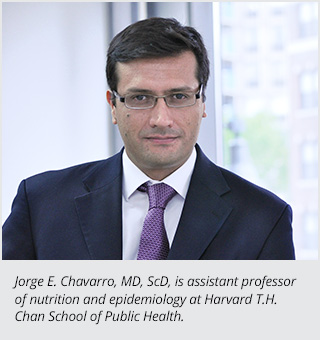The Western Diet’s Impact on Prostate Cancer Outcomes
Eating red meat, processed meat, and a high fat-diet after a prostate cancer diagnosis may affect a man’s risk of death from the disease.

After a prostate cancer diagnosis, men who ate foods rich in processed meats, red meats, and high-fat dairy products were found to have an increased risk for prostate cancer-related death and death from all causes, according to a recently published observational study.
Men who had diets rich in vegetables and fruits after a prostate cancer diagnosis had a lowered risk for death from all causes.
The study was published in Cancer Prevention Research, a journal of the American Association for Cancer Research.
There are nearly 3 million men living with prostate cancer in the United States; however, there is very little information for patients and clinicians about how to manage patients’ lifestyles, such as diet, after a prostate cancer diagnosis to improve survivorship, explained senior author of the study, Jorge E. Chavarro, MD, ScD, assistant professor of nutrition and epidemiology at Harvard T.H. Chan School of Public Health and of medicine at Brigham and Women’s Hospital.

Chavarro and colleagues used data from participants of the Physician’s Health Study I and II, who had completed a comprehensive questionnaire about their clinical status and diet. The researchers followed the patients for an average of 14 years after their prostate cancer diagnosis, and studied the impact of dietary patterns on mortality after taking into account other factors that influence prostate cancer, such as body mass index, smoking status, prostate-specific antigen (PSA) levels, tumor characteristics at diagnosis, and initial treatment.
The researchers examined the data on men in four groups based on how closely their diets matched the standard Western diet high in processed foods, red meats, and high-fat dairy products. Compared with men who were in the lowest quartile – those who ate a Western style diet the least – those men in the highest quartile of the Western diet pattern had a 2.53 times (153 percent) increased risk for prostate cancer-specific death, and a 67 percent increased risk for death from all causes.
Men whose diet was predominantly vegetables, fruits, fish, legumes, and whole grains, called the “prudent” diet pattern, had a 36 percent lowered risk for death from all causes; they also had a lowered risk for prostate cancer-specific death, but this association was not statistically significant.
An estimated 220,800 men in the United States will be diagnosed with prostate cancer and 27,540 men will die of the disease in 2015, according to federal statistics.
“Our results suggest that the same dietary recommendations that are made to the general population primarily for the prevention of cardiovascular disease may also decrease the risk of dying from prostate cancer among men initially diagnosed with nonmetastatic disease,” Chavarro said.
Most men in the cohort were Caucasian and all participants were physicians. Further studies are needed to verify the findings of this study in a diverse population with men from different socioeconomic and racial/ethnic backgrounds, the authors noted in their paper.